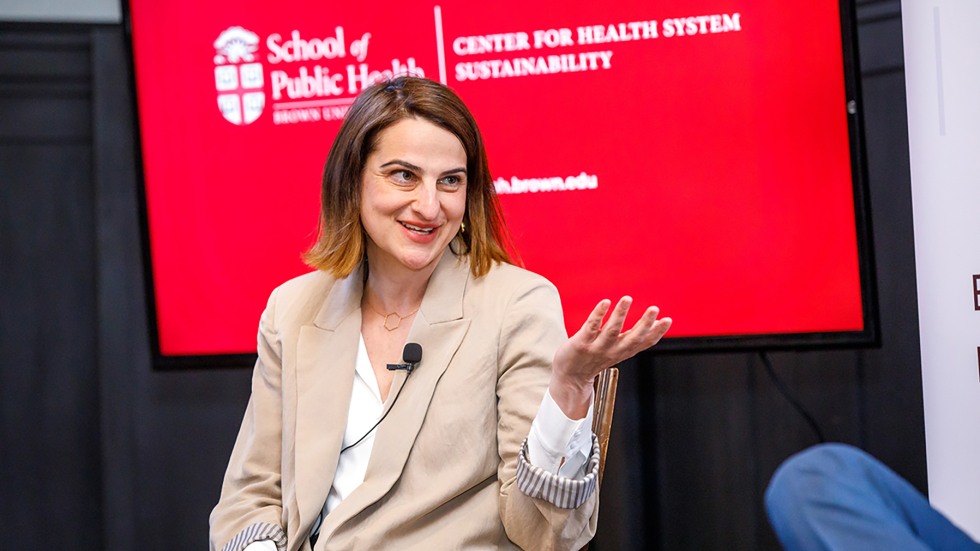PROVIDENCE, R.I. [Brown University] — It’s an often-cited fact that the United States spends more money on health care than other high-income countries yet still faces enormous challenges in cost, quality and access to care, says Dr. Ashish K. Jha, dean of the Brown University School of Public Health.
What’s less understood, Jha notes, is how health care systems in other nations function to serve their people, and how different strategies for operating health systems can impact population health.
To uncover insights for the benefit of all countries into how health systems work and how they struggle, a new center at the School of Public Health will bring together researchers to analyze health systems across the globe. Jha introduced the premise behind the new Center for Health System Sustainability at a Tuesday, April 23, panel discussion about health policy challenges around the world.
“There’s a ton to be learned across countries,” he said. “This center really tries to get at, in my view, the heart of that question of, ‘How can we all learn from each other, and how can we all do better?’”
The dean formally launched the center during the event among faculty and students from the School of Public Health, as well as researchers, scholars and international partners. Jha moderated a discussion that offered local and global perspectives, beginning with pressing health policy challenges facing Rhode Island and other U.S. states, and then expanding to the challenges in high-income countries in Europe and Asia, as well as the policies used to address them.
Countries around the world have similar objectives, said Irene Papanicolas, a professor of health services, policy and practice at the School of Public Health who will direct the new Center for Health System Sustainability: Improve people's health, deliver care that's responsive to personal needs, treat all people with respect and dignity — and accomplish this in an equitable and financially sustainable way. At the same time, she said, there are shared global challenges: aging populations, chronic disease and illness, prohibitively expensive new treatments, pandemics and climate change.
It’s a missed opportunity that case studies from different countries haven’t been used to compare strategies and understand how health policy decisions affect population health outcomes, said Papanicolas, who recently came to Brown from the London School of Economics.
“And now we're at this interesting juncture where international comparisons are a necessity,” said Papanicolas, who has worked closely with governments and organizations to inform policymakers on issues related to health system performance assessment. “New systems need to be more cooperative, more global, in terms of the solutions that they find. Ultimately, we need to change what health systems look like and think beyond artificial national boundaries if we're going to improve health globally.”
According to Papanicolas, the Center for Health System Sustainability will leverage patient data and global partnerships to produce comparative insights and actionable policy recommendations to help countries learn from one another. The goal is to optimize patient care and build resilient, sustainable health systems across the globe.
The center will house the International Collaborative on Costs, Outcomes and Needs in Care, a partnership of 15 collaborators from North America, Europe, Asia and the Pacific committed to advancing the development of methods and measures in comparative health systems research. Papanicolas and Jha are among the co-leaders of this collaborative.
The center will include faculty, staff and researchers from Brown as well as international research partners, including Jon Cylus from the European Observatory on Health Systems and Policies and Luca Lorenzoni from the Organisation for Economic Co-operation and Development. Cylus, who is based in Barcelona, and Lorenzoni, who is based in Paris, joined Papanicholas and Jha at the launch event.

